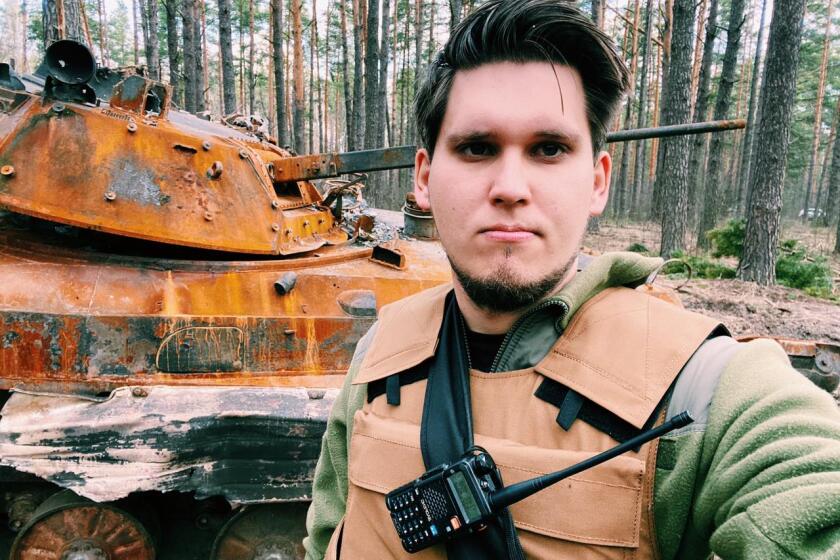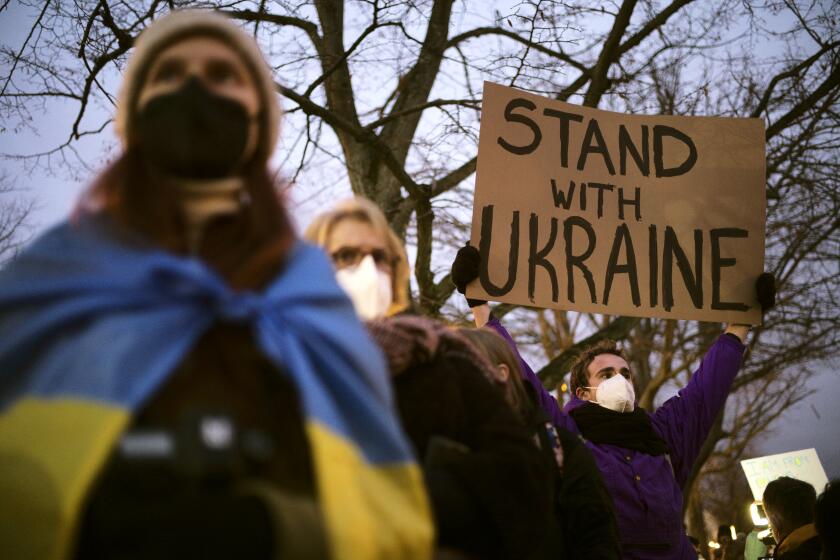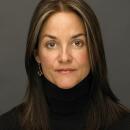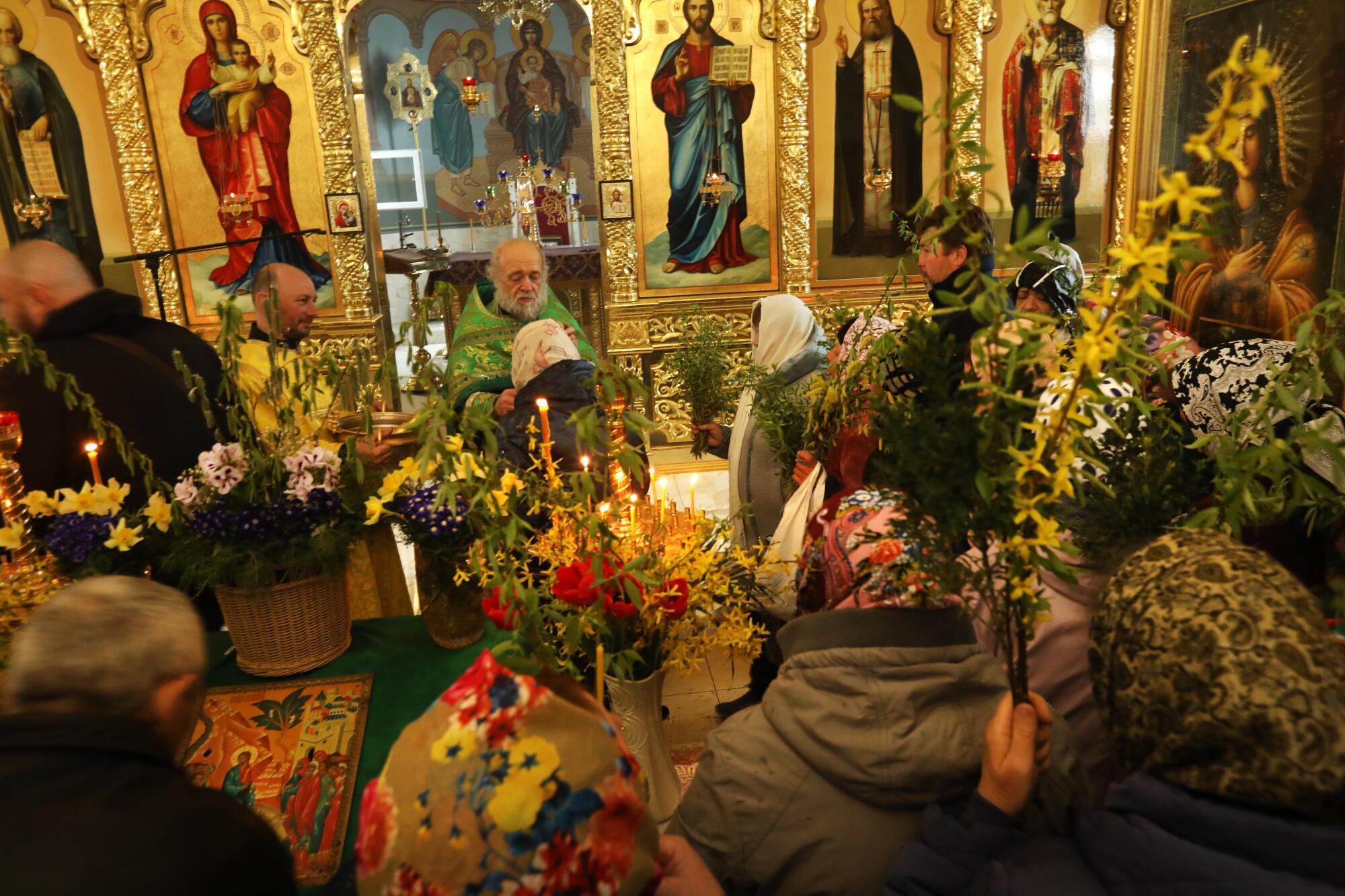
- Share via
SLOVIANSK, Ukraine — On a dreary Sunday morning, with the sirens momentarily silenced even as the thumps of distant battles reverberated overhead, roughly 100 people straggled into the Seraphim Sarovsky church, on the edge of this city at the edge of war.
Few spoke — or even whispered — as they walked with subdued, timid steps past the church’s outer arch and into its ornate confines, genuflecting and kneeling before the altar or kissing the icon of Seraphim Sarovsky. Others lit candles, their eyes lost in the movement of the flames.
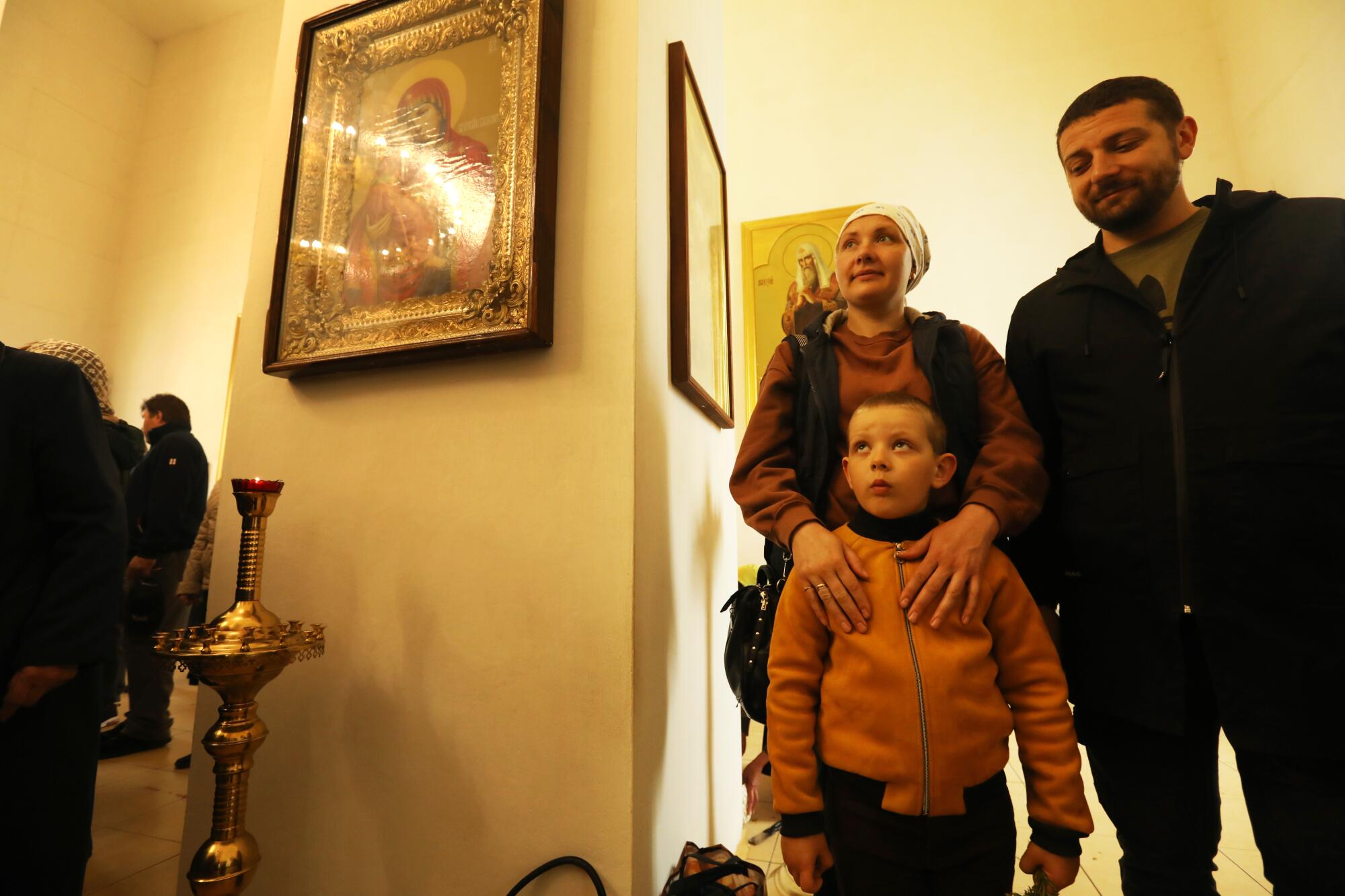
For the worshippers gathered here, along with some 30 million of their fellow Ukrainian Orthodox Christians, this was Palm Sunday. In years past, this would have been a joyous celebration; but now, with the Russian army assembling its forces a mere 20 miles away and Sloviansk firmly in its crosshairs, the ceremony was more about comfort than commemoration, a moment to seek refuge in an often-repeated routine.
“Our apartment isn’t far from here. Last night was loud, with lots of shelling, so of course I’m worried,” said Stas, a man in his 40s who gave only his first name for reasons of privacy. He added that he could not leave, because his mother was bedridden and the journey to some kind of sanctuary was not something she could withstand. Beside him stood his wife, Eugenia, and his 5-year-old son, Daniel. “We came to church to calm ourselves, to calm our son.”
Ukraine war heroes: A student spiriting supplies to soldiers. A DJ answering calls about the missing
More than 4.6 million Ukrainians have fled since Russia invaded, but millions more have stayed to help defend their country. These are their stories.
Many had come for the same reason, seeing in prayer some kind of insurance to protect them from the war now at their doorstep. The service drew even those who normally wouldn’t come to church, such as Valeri. A young man, he bought a votive candle, looking nervous as he approached the holder.
“What should I do with this candle?” he asked a parishioner, before one of the caretakers, an elderly woman, took him to the candle holder and helped him light it.
“I never come to church,” he said, explaining that his family was in Sloviansk and didn’t want to leave. “I don’t know what’s going to happen, and I’m really afraid,” he said. “So I came here.”
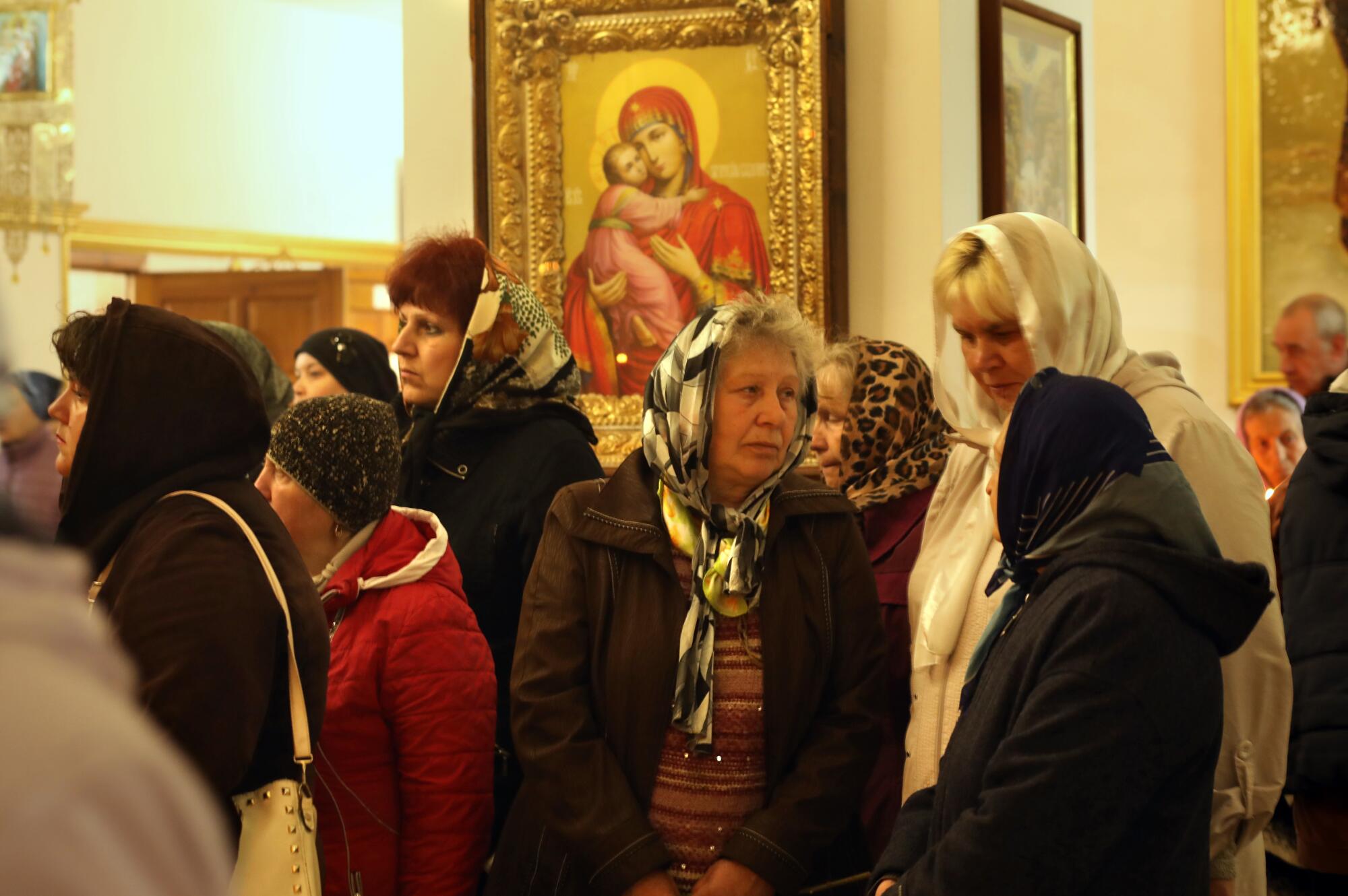
Moments later, Valeri Lebed, a white-haired parish priest with an august-looking beard and a gold-brocaded green robe, emerged from a door behind the altar, trailing embers as he swung an incense burner to and fro. He traced a path around the worshippers — some of them men, most of them women donning scarves in bright colors and floral patterns — before returning to the altar and beginning the service with a Bible reading recounting Jesus’ entry into Jerusalem.
He made no mention of the war, perhaps not wanting to bring a sour note for those seeking solace here. Yet elsewhere in the Christian world, the war seemed inescapable.
On Easter Sunday, speaking to a packed St. Peter’s Square where some 100,000 people gathered to hear his geopolitical “Urbi et Orbi” (to the city and to the world) speech, Pope Francis pleaded for an end to the conflict, calling for people “not to get used to war” even as he leveled criticism against Russia without mentioning its name.
“Our eyes, too, are incredulous on this Easter of war,” he said. “We have seen all too much blood, all too much violence. Our hearts, too, have been filled with fear and anguish, as so many of our brothers and sisters have had to lock themselves away in order to be safe from bombing.
Many migrants from the former Soviet Union living in Germany support Vladimir Putin.
“May there be peace for war-torn Ukraine, so sorely tried by the violence and destruction of this cruel and senseless war into which it was dragged.”
The first part of his liturgy concluded, Lebed returned to behind the altar as a trio of women standing in the balcony above began to sing. Their voices resonated in harmony, ringing through the church in a call-and-response with Lebed and the church’s deacon, Roman.
“God have mercy on us,” they repeated, the people bowing and raising their head to mark the verses.
After Communion, the parishioners, many carrying bunches of willow branches wrapped in twine, congregated before the altar as Lebed picked up the aspergillum, a brush he used to sprinkle holy water. They came one at a time, raising their branches above their head while Lebed dipped the aspergillum into a nearby basin and swung it in a powerful arc toward each supplicant, inundating their branch and face with the water.
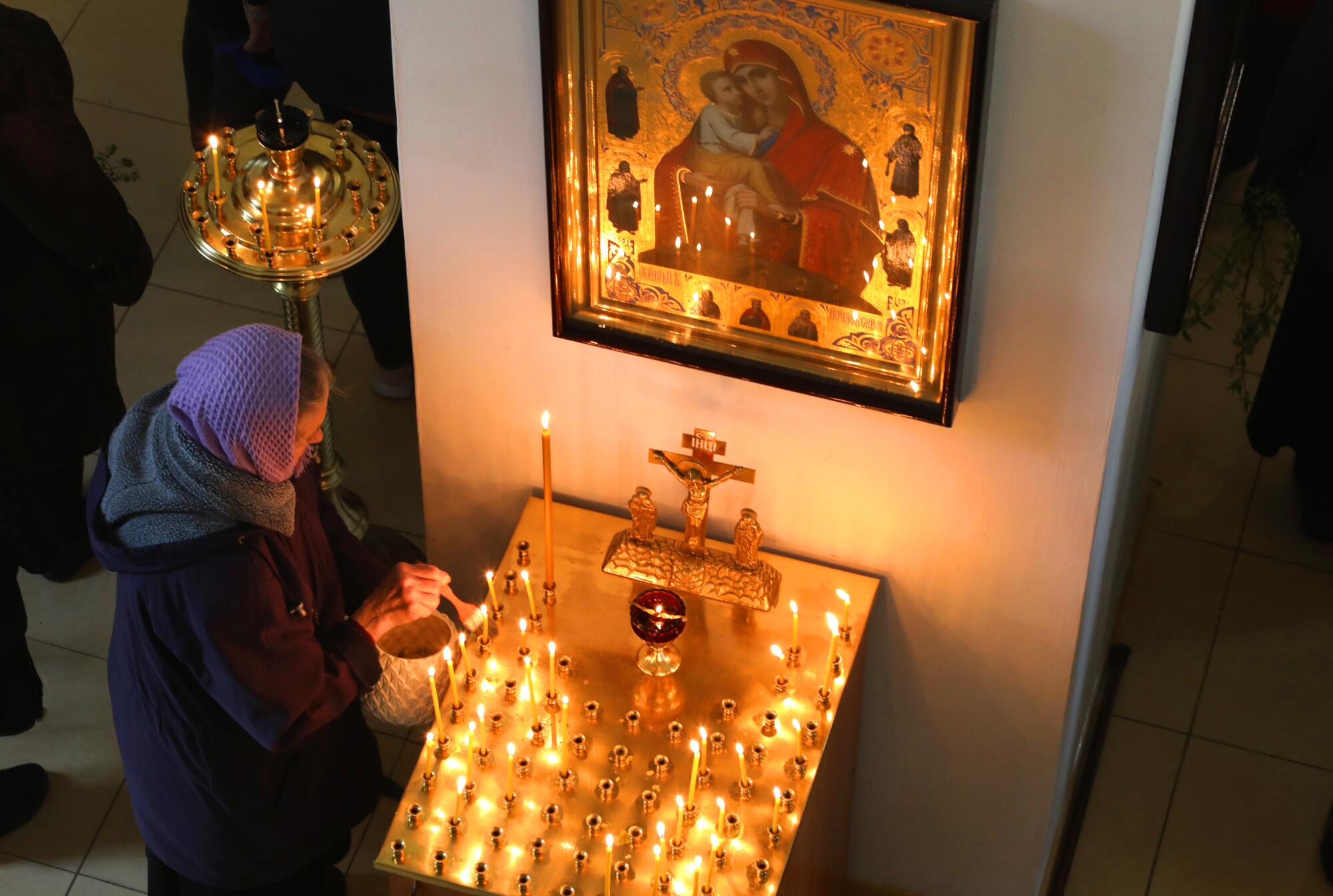
And so it was the end of the service. Most left quickly, leaving only a few to linger over homemade pierogies, coffee and tea even as the caretakers mopped up the holy water and snuffed out the candles. Standing before the church’s turquoise walls, Roman, the deacon, said he expected more people to come next Sunday, when Orthodox Christians celebrate Easter.
“We don’t have any fear. We didn’t in 2014 either,” he said, referring to the clashes that saw Moscow-backed separatists take Sloviansk before government fighters clawed it back. As he spoke, Daniel rode his bicycle in the churchyard.
“We aren’t going to leave. My faith makes me brave,” he said. “What do I need to worry about if I have my faith in God?”
More to Read
Sign up for Essential California
The most important California stories and recommendations in your inbox every morning.
You may occasionally receive promotional content from the Los Angeles Times.
